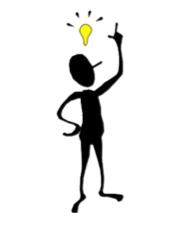The (6 C’s)2 of Education for
the 21st Century
The illiterate of the 21st century will not be those
who cannot read and write, but those who cannot learn, unlearn and relearn.
-Alvin
Toffler -
Think Critically
Thinking
Critically allows the individual to manage information. Information
presented in a multitude of forms from a variety of media. Information that
must be filtered and analyzed, authenticated and processed, and eventually must
be synthesized in a form that will be useful to the individual.
Characterize –
Where
does the information come from? What is the validity of the information? What
is the usefulness of the information?
Classify -
Where
does the information fit within the parameters of previous knowledge?
Compare -
What
are the positive and negative aspects of the information compared to know
values?
Connect –
How
can this information be related to what is known and what is necessary to understand?
Communicate -
How
can this information be effectively passed on to those who can utilize the
material?
Curate -
How
can the information be formatted in a functional format for use today and in
the future?
Work Collaboratively
Working Collaboratively engages the
individual in the world they share through association. Association, that is
created to benefit an organization and as a means to conduct business.
Association that includes partnership and teamwork, leadership and assistance,
and an alliance that serves to benefit the whole.
Collegiality –
How
can varying personalities be valued and utilized for optimum outcomes?
Coordination –
How
can the talents included in this collaborative effort be maximized for success.
Communication –
What
are the most effective means of communication to create an inclusive
collaborative effort?
Coherence –
How
do the members of a collaborative effort maximize strengths and overcome
weaknesses in order to maximize outcomes?
Character -
How do
respect and integrity play a role in the effectiveness of a collaboration?
Celebration –
How
is the success of the collaboration measured and valued?
Communicate
Clearly
Communicating Clearly provides the means by which
the individual can present information. Information presented in a multitude of
means through a variety of media. Information that is clear and concise,
effective and engaging. Information that must eventually be presented in a way
that is meaningful to the individual as well as a global audience.
Clear –
Is
the information effective for the intended audiences?
Concise –
Is
the information formatted in the most efficient means available?
Concrete –
Does
the information have a defined purpose and meaning?
Coherent –
Does
the information provide connections to previous knowledge and intended use?
Correct –
Is
the information correct and are resources available to validate?
Complete –
Is
the information presented in entirety or are resources available to complete
connections?
Embrace Culture
Embracing Culture encourages the individual to
appreciate where we have come from, who we are now and how we can move into the
future. Culture associates the individual to all that surrounds
them: art, drama, dance poetry, history, science, religion, written and
unwritten language, technology and the individual themselves.
Core Values –
What
are the basic beliefs and understandings of this cultural community?
Community -
How
does the community function as an entity and within the realm of all other
communities?
Chronicle -
How
is the history and beliefs of this culture passed on to new generations?
Commitment -
How
is community committed to maintaining the values and relationships of the past,
present and future of the culture?
Celebrations –
How
are the milestones and values of the culture celebrated within the community?
Connection –
How
are the members of the community included in understanding the past while
shaping the future?
Develop Creativity
Developing Creativity provides an avenue for
expression. The structure means nothing without
function. Therefore, the individual must be capable of creating
something with the knowledge that they have worked so hard to
obtain. It is in creating that the individual gains purpose.
Curiosity -
How
is the desire to gain understanding cultivated to expand both knowledge and
possibility?
Courage –
How
does the environment reduce the fear of failure in order to maximize the
possibilities for innovation an change?
Conceptualize –
How
is ideation encouraged to maximize the imaginative process?
Constructive –
What
are the processes involved from conceptualization to completion?
Change –
How is creativity
valued as a vehicle for change?
Cultural –
How
is the process related to the cultural understandings of the community?
Utilize Connectivity
Utilizing Connectivity places the individual
in touch with their world. In today’s existence that is increasingly
through the technology that is rapidly changing the way they view their
world. Understanding that connections are personal no matter what
the means of contact and that humanity must remain in light of how the
technology may change for each individual.
Communication -
How
is technology utilized as a means of clear communication?
Curation -
How
is content gathered, processed and stored for now and the future?
Coordination –
How
are the aspects of technology maximized
for the community?
Connectedness -
How
is technology utilized as a means of connecting to the global community?
Collaboration –
How
is technology employed to create avenues of collaboration in the digital world?
Citizenship –
How
is the responsibility of digital citizenship shared by all members of the
community?






